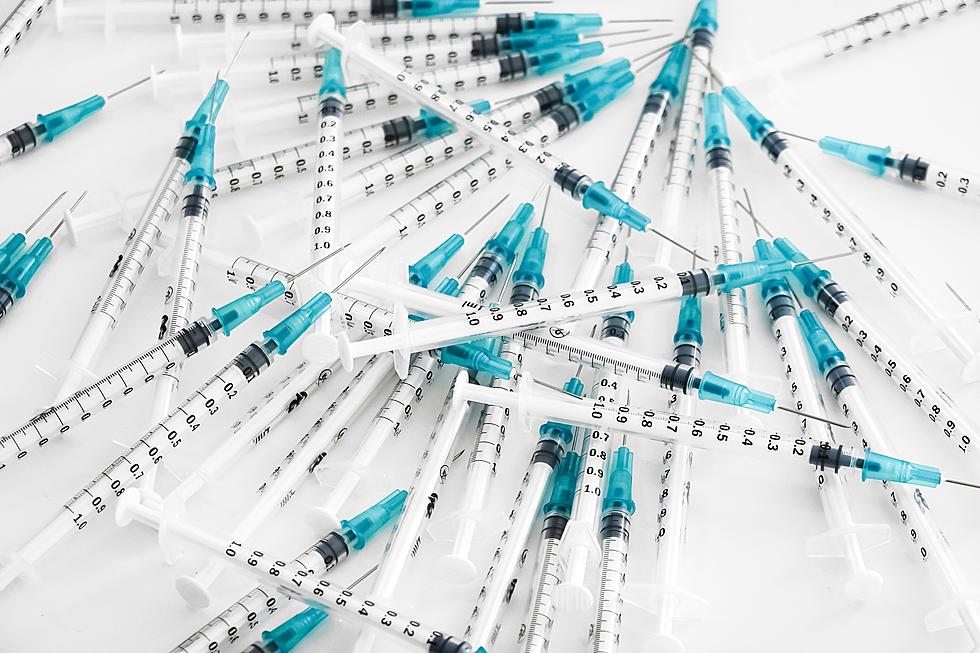
Local Pharmacist Tells Us Why We Need Boosters For More Than Just Covid
WHAT'S NEW IN BOOSTER SHOT NEWS? 3 NEW RECOMMENDATIONS
In a recent interview with Coborns' Pharmacy Clinical Program Manager, Jason Miller, we discussed the most current and up-to-date information regarding the latest recommendations from the CDC for booster shots for adults, and they aren't related to Covid.
You can listen to the entire interview by clicking the player below.
HEPATITIS B
Hepatitis B is now a routine recommendation for all adults ages 19 to 59. It is particularly important for adults over age 59 with risk factors that include the following:
- Sexually active people not in monogamous relationships
- Persons with injection use, for example, diabetes
- Men who have sex with men
- Residents and staff of places that help people with developmental disabilities
- Healthcare workers and public safety workers
- People who travel internationally
- People with HIV Infection
- Incarcerated people
- People with chronic liver disease
Hepatitis B usually is a 3 shot series with each shot being given 2 months apart. However, there is also a 2 shot series available, with dose 2 being given at least one month after the first.

SHINGLES
If you've ever known someone that has had shingles, you would run to your local pharmacy or doctor's office, and get your shingles shots right away. It's incredibly painful and the shots are going to provide great relief for individuals who want to avoid the pain and suffering shingles can bring.
The old Shingles vaccine, called Vostavax, was a 1 shot version for people ages 50 and up and was about 60% effective. Now, there is a new vaccine called Shingrix, which is a two-shot series 2-6 months apart for people who are ages 50 and up, and it is about 97% effective! What a difference. If a person is immunocompromised, the new guidelines allow shingles vaccinations for people 19 and older.
PNEUMOCOCCAL
The old guidelines for Pneumococcal boosters were recommended for immunocompromised people 19 and older, to get a booster called Prevnar 13. Pneumovax 23 was recommended for people 19 to 64 years old that had certain medical conditions, like issues with their lungs, or diabetes. 65 and older were recommended to get Prevnar, and then a year later get a booster of Pneumovax.
The latest guidelines are as follows:
Prevnar 20 is now recommended for EVERYONE 65 and older, and if you are a person with medical conditions between the ages of 19-and 64. The list of conditions includes but is not limited to:
- Alcoholism
- Cerebrospinal fluid leak
- Chronic heart disease
- Congestive heart failure
- Cardiomyopathies
- Chronic liver disease
- Chronic lung disease
- Chronic obstructive pulmonary disease
- Emphysema
- Asthma
- Chronic renal failure
- Cigarette smoking
- Cochlear implant
- Congenital or acquired asplenia
- Congenital or acquired immunodeficiency
- B- Humoral or T-lymphocyte deficiency
- Complement deficiency, particularly C1, C2, C3, or C4 deficiency
- Phagocytic disorder
- Diabetes Mellitus
- Generalized malignancy
- HIV infection
- Hodgkin disease
- Iatrogenic immunosuppression
- Leukemia
- Lymphoma
- Multiple Myeloma
- Nephrotic syndrome
- Sickle cell disease
- Solid-organ transplant
For people who have already received Prevnar 13, and Prevan 23, Prevnar 20 is not needed. However, if you've ONLY received Prevnar 23, then you SHOULD get Prevnar 20. If you ONLY received Prevnar 13, you should get Prevnar 23. It's all a bit confusing, so talk to your health care provider to find out exactly what shots you should be getting.
15 Signs You Might Be a Minnesota Grandma
The 25 Best Movies Starring Minnesotans
10 Commandments of Attending a Minnesota BBQ
More From 103.7 The Loon









